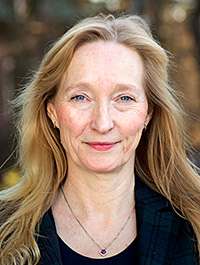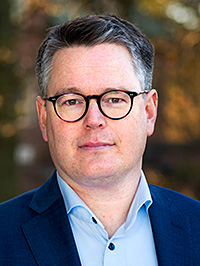This year’s two Wallenberg Clinical Scholars are each taking on an important medical challenge. Professor Birgitta Henriques Normark wants to find out how new strains of S. pneumoniae form and become resistant to antibiotics. Professor Richard Rosenquist Brandell will study blood cancer cells.
The Knut and Alice Wallenberg Foundation is one of the largest private financiers of research in Europe. Swedish research receives funding in various scientific fields via a number of research programs. One of these programs is Wallenberg Clinical Scholars, which supports and encourages some of the most successful clinical researchers at Swedish universities and university hospitals.
“The aim of the program is the long-term strengthening of Swedish, patient-oriented, clinical research,” says Peter Wallenberg Jr, Chairman of the Knut and Alice Wallenberg Foundation.
“Clinical researchers have a pressured situation, so I am extremely happy that the Knut and Alice Wallenberg Foundation’s Scholars program is providing some of our very best clinical researchers with the opportunity to concentrate on and expand their important research,” says the Secretary General of the Royal Swedish Academy of Sciences, Göran K. Hansson.
Wallenberg Clinical Scholars 2017:

Birgitta Henriques Normark, chief physician and professor at the Department of Microbiology, Tumor and Cell Biology at Karolinska Institutet, leads Sweden’s monitoring of serious pneumococcal bacterialinfections and the effects of the introduction of the pneumococcal vaccine. As a Wallenberg Clinical Scholar, she will map how and why new strains of S. pneumoniae form, mature, and spread. Why do some of them stay in the nose, while others penetrate the blood-brain barrier? How does S. pneumoniae take up the genome and spread antibiotic resistance? One important aim is to produce treatments that prevent such malicious pneumococcal bacteria from becoming established in the nose and spreading across the blood-brain barrier, which protects brain tissue.

Richard Rosenquist Brandell, chief physician and professor at the Department of Immunology, Genetics and Pathology, Uppsala University, has boosted the development of hypermodern infrastructure for the large-scale investigation of cells and their genetic material. As a Wallenberg Academy Fellow, he will use this technology to systematically study blood cancer cells from different groups of patients and stages of the disease. Why do some cancer cells more or less lie dormant, while others grow aggressively? Why do some cancer cells die from chemotherapy, while others spread unhindered despite treatment?
An important aim of the project is to provide better prognoses for those affected.
About the program:
During the program period, 2015-2025, twenty-five grants will be awarded to Sweden’s foremost clinical researchers. This amounts to SEK 600 million; each researcher receives SEK 15 million for a five-year period, with the potential for a five-year extension.
Wallenberg Clinical Scholars is part of the SEK 2.5 billion that the Knut and Alice Wallenberg Foundation is investing to boost medical research and the life sciences over a ten-year period.
Universities with medical faculties are invited to nominate researchers for these research grants. The Royal Swedish Academy of Sciences is responsible for the scientific evaluation.